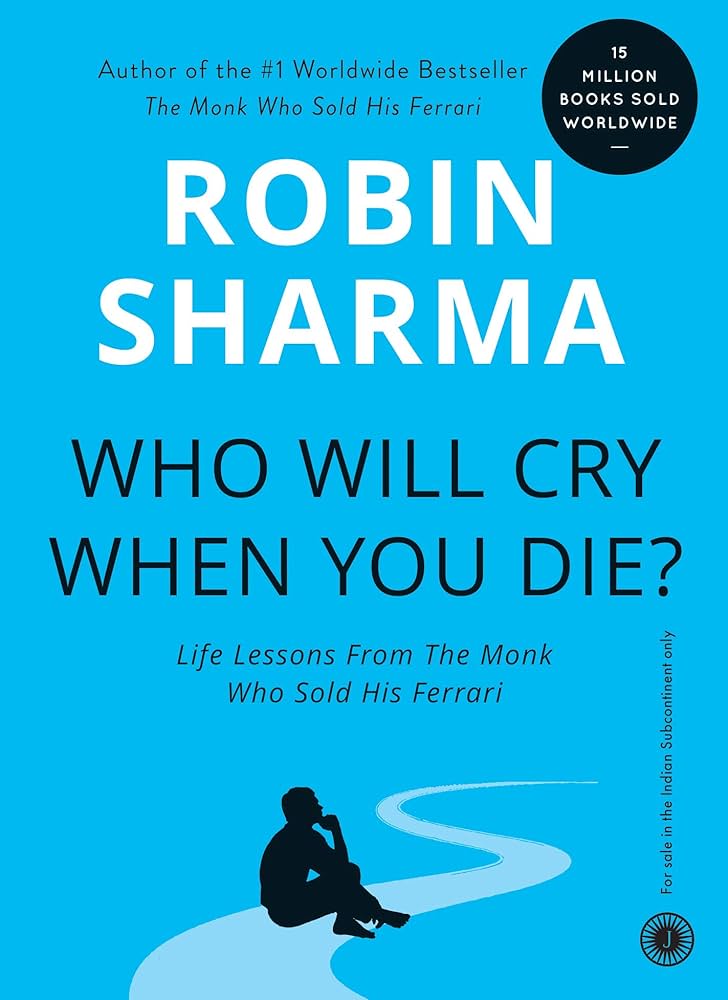The book is structured as a series of short chapters, each focusing on a specific life lesson. Sharma's writing style is both motivational and reflective, encouraging readers to contemplate their actions and values. The author uses a conversational tone, making the book accessible and easy to read.
The core message of "Who Will Cry When You Die?" revolves around living a life of purpose and leaving a positive impact on the world. Sharma provides valuable insights into various aspects of life, such as time management, relationships, personal growth, and gratitude. He encourages readers to assess their priorities and make intentional choices to live a more meaningful and balanced life.
The book is not just theoretical but offers practical exercises and actionable advice that readers can implement in their daily lives. Sharma provides a roadmap for self-improvement and challenges readers to take responsibility for their happiness and success.
One of the strengths of the book is its focus on values and character development. Sharma underscores the importance of integrity, kindness, and gratitude, which are qualities that lead to a fulfilling and successful life. The book emphasizes the significance of building strong relationships and finding purpose in one's work.
The pacing of "Who Will Cry When You Die?" is well-balanced, allowing readers to absorb each lesson without feeling overwhelmed. The short chapters make it easy to pick up the book for quick, daily inspiration or reflection.
In conclusion, "Who Will Cry When You Die?" is a thought-provoking and motivational guide to living a more meaningful and purposeful life. Robin Sharma's insights and principles offer a roadmap for personal growth and self-improvement. This book is an excellent resource for anyone seeking to make positive changes in their life, find purpose, and leave a lasting legacy. It reminds us that our time on this earth is finite, and it encourages readers to take meaningful actions to make the most of it.




Comments (0)